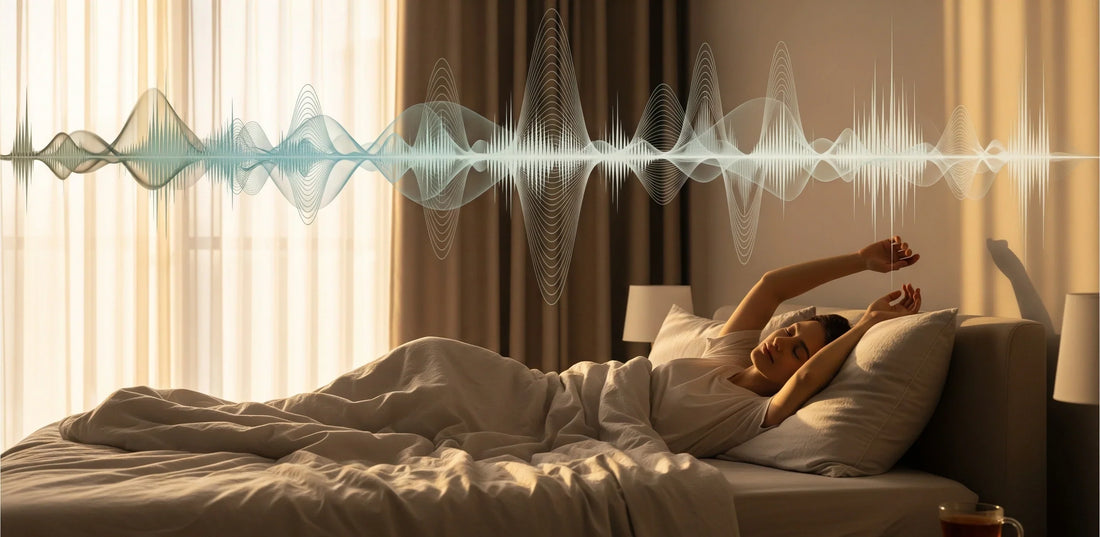
Wake-Up Whispers: ASMR Playlists That Replace Your Morning Coffee
Share
The jarring buzz of an alarm clock followed by the desperate need for caffeine – sound familiar? More people are discovering that gentle ASMR sounds can provide a smoother, more sustainable way to ease into consciousness each morning.
The Science Behind Gentle Wake-Ups
Research suggests that abrupt awakenings can trigger cortisol spikes, leaving you feeling groggy and stressed. ASMR's soft, predictable sounds work with your brain's natural sleep cycles, allowing for a gradual emergence from deep sleep states. The soothing tingles associated with ASMR are thought to be linked to an increased production of endorphins and oxytocin—your body's natural feel-good chemicals.
Unlike caffeine, which blocks adenosine receptors to mask tiredness, ASMR wake-up sounds don't force alertness. Instead, they allow your brain to transition through sleep stages more naturally, working with your circadian rhythm rather than against it. This helps you avoid the shock to your system that a loud alarm can cause, leading to a more peaceful awakening.
Building Your Morning ASMR Playlist
Start with sounds that gradually increase in intensity. Begin with barely audible whispers or soft rainfall, then progress to slightly more engaging triggers like gentle tapping or page turning. The key is progression—your brain needs time to shift from sleep mode to wakeful awareness.
Popular morning ASMR categories include:
- Nature progression: Start with distant thunder, move to steady rain, and finish with birds chirping.
- Whisper sequences: Begin with inaudible whispers and gradually increase to soft-spoken affirmations.
- Textural sounds: Fabric brushing escalating to paper crinkling or gentle scratching.
- Binaural beats with ASMR: Combine frequency therapy with traditional triggers.
Optimizing Your Audio Setup
The quality of your morning ASMR experience depends heavily on audio delivery. Many find that comfortable earbuds create the most immersive experience, especially for binaural recordings that rely on left-right audio separation. The intimate nature of whispered content particularly benefits from this close-ear delivery.
Position your device within easy reach so you can adjust the volume without fully waking up. Start with lower volumes—your hearing is more sensitive upon waking, and sudden loud sounds can trigger the stress response you're trying to avoid.
Creating Sustainable Morning Routines
Unlike caffeine dependency, ASMR wake-ups can become more effective with consistent practice. Your brain begins to associate specific sounds with gentle awakening, creating conditioned responses that make mornings easier over time.
Try the "graduated awakening" method: Set your ASMR playlist to begin 20 minutes before your intended wake time. Start with barely perceptible sounds that won't fully wake you but begin the arousal process. This mimics natural sunrise patterns and can significantly reduce morning grogginess.
Anecdotal reports suggest that using ASMR can lead to more sustained energy throughout the day without the afternoon crash often associated with morning caffeine dependence.
Troubleshooting Common Issues
If you're sleeping through ASMR alarms, you may be starting too softly or choosing overly relaxing triggers. Incorporate slightly more activating sounds like gentle chimes or soft finger snapping in your later playlist segments.
For light sleepers who wake too easily, focus on ultra-soft triggers with consistent volume levels. Avoid sudden sound changes or unpredictable elements that might be startling.
Remember that building new sleep habits takes time. Give your ASMR morning routine at least two weeks of consistent practice before evaluating its effectiveness. Your brain needs time to form new neural pathways associated with these gentler wake-up cues.
The goal isn't necessarily to eliminate coffee entirely, but rather to reduce your dependence on external stimulants for basic alertness. Many find they naturally drink less caffeine when their mornings begin more peacefully.
